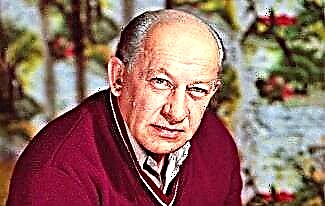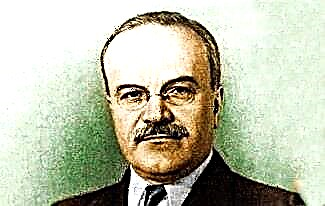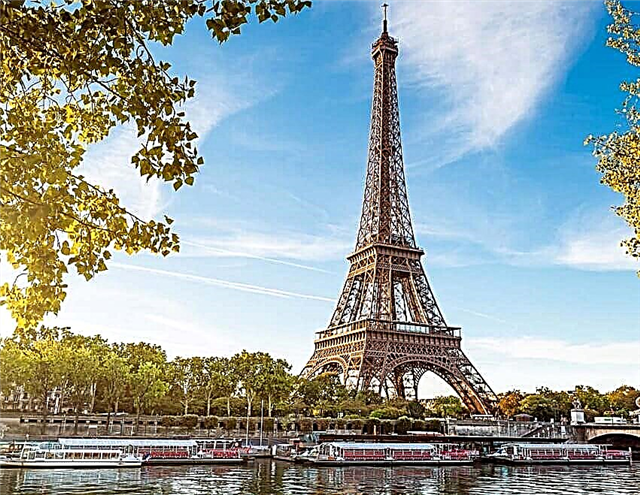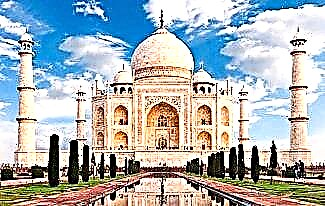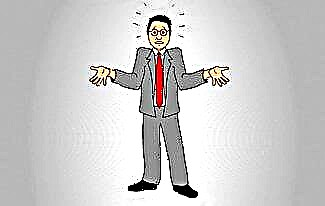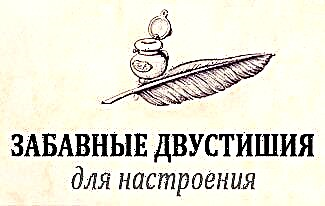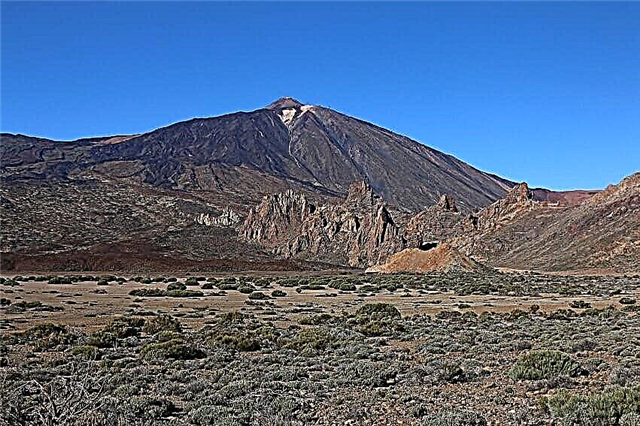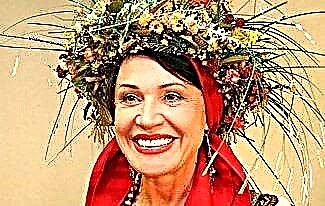The names of states and territories are by no means a frozen array of toponyms. Moreover, a variety of factors affect its changes. The name can be changed by the government of the country. For example, the government of Libya under Muammar Gaddafi asked to call the country "Jamahiriya", although this word means "republic", and other Arab countries, which have the word "republic" in their names, remained republics. In 1982, the government of Upper Volta renamed its country Burkina Faso (translated as "Homeland of Worthy People").
It is not often that the name of a foreign country can change to something closer to the original name. So in 1986, in Russian, the Ivory Coast began to be called Cote d'Ivoire, and the Cape Verde Islands - Cape Verde.
Of course, it should be remembered that in everyday life we use everyday, shorter names, excluding, as a rule, the designation of the form of statehood. We say and write “Uruguay”, not “Eastern Republic of Uruguay”, “Togo” and not “Togolese Republic”.
There is a whole science of translation and the rules for using the names of foreign states - onomastics. However, by the time of its creation, the train of this science had practically already left - the names and their translations already existed. It's hard to imagine what the world map would look like if scientists had gotten to it earlier. Most likely, we would say “France”, “Bharat” (India), “Deutschland”, and onomastic scientists would have discussions on the topic “Is Japan“ Nippon ”or is it“ Nihon? ”.

1. The name "Russia" first appeared in use abroad. So the name of the lands north of the Black Sea was recorded by the Byzantine emperor Constantine Porphyrogenitus in the middle of the 10th century. It was he who added the characteristic Greek and Roman ending to the name of the country Rosov. In Russia itself, for a long time, their lands were called Rus, the Russian land. Around the 15th century, the forms “Roseya” and “Rosiya” appeared. Only two centuries later, the name "Rosiya" became common. The second "c" began to appear in the 18th century, at the same time the name of the people "Russian" was fixed.
2. The name of Indonesia is easy and logical to explain. "India" + nesos (Greek "islands") - "Indian Islands". India is indeed located nearby, and there are thousands of islands in Indonesia.
3. The name of the second largest state in South America Argentina comes from the Latin name for silver. At the same time, there is no smell of silver in Argentina, more precisely, in that part of it, from which its research began, as they say. This incident has a specific culprit - the sailor Francisco Del Puerto. At a young age, he participated in the expedition of Juan Diaz De Solis to South America. Del Puerto went ashore with several other sailors. There the natives attacked a group of Spaniards. All of Del Puerto's companions were eaten, and he was spared because of his youth. When the expedition of Sebastian Cabot came to the shore in the same place, Del Puerto told the captain about the mountains of silver located in the upper reaches of the La Plata River. He was apparently convincing (you will be convincing here if the cannibals are waiting for you to grow up), and Cabot abandoned the original plan of the expedition and went in search of silver. The search was unsuccessful, and traces of Del Puerto are lost in history. And the name “Argentina” first took root in everyday life (the country was officially called the Vice-Kingdom of La Plata), and in 1863 the name “Argentine Republic” became official.
4. In 1445, the sailors of the Portuguese expedition of Dinis Dias, sailing along the western coast of Africa, after long days of contemplating the desert landscapes of the Sahara, saw on the horizon a bright green speck protruding into the ocean. They did not yet know that they had discovered the westernmost point of Africa. Of course, they named the peninsula “Cape Verde”, in Portuguese “Cape Verde”. In 1456, the Venetian navigator Kadamosto, having discovered an archipelago nearby, without further ado, also named it Cape Verde. Thus, the state located on these islands is named after an object that is not located on them.
5. The island of Taiwan until modern times was called Formosa from the Portuguese word for "beautiful island". The indigenous tribe living on the island called him “Tayoan”. The meaning of this name does not seem to have survived. The Chinese changed the name into a consonant "Da Yuan" - "Big Circle". Subsequently, both words merged into the current name of the island and the state. As is very often the case in Chinese, the combination of the hieroglyphs "tai" and "wan" can be interpreted in dozens of ways. These are both the “platform over the bay” (probably referring to the coastal islet or spit), and the “bay of terraces” - terraced farming is developed on the slopes of the Taiwan Mountains.

6. The name “Austria” in Russian comes from “Austria” (southern), the Latin analogue of the name “Österreich” (Eastern state). Sources somewhat confusedly explain this geographic paradox by the fact that the Latin version implied that the country was located on the southern border of the spread of the German language. The German name meant the location of the Austrian lands in the east of the zone of possession of the Germans. So the country, which lies almost exactly in the middle of Europe, got its name from the Latin word "south".
7. Slightly north of Australia, in the Malay archipelago, is the island of Timor. Its name in Indonesian and a number of tribal languages means "eastern" - it is truly one of the easternmost islands of the archipelago. Timor's entire history is divided. First the Portuguese with the Dutch, then the Japanese with the partisans, then the Indonesians with the locals. As a result of all these ups and downs, Indonesia annexed the second, eastern half of the island in 1974. The result is a province called "Timor Timur" - "East East". The inhabitants of this topographic misunderstanding with the name did not put up with it and staged an active struggle for independence. In 2002, they achieved it, and now their state is called "Timor Leshti" - East Timor.
8. The word "Pakistan" is an acronym, meaning it is made up of parts of several other words. These words are the names of the provinces of colonial India in which predominantly Muslims lived. They were called Punjab, Afghanistan, Kashmir, Sindh and Baluchistan. The name was coined by the famous Pakistani nationalist (like all the leaders of Indian and Pakistani nationalists, educated in England) Rahmat Ali in 1933. It turned out very well: “paki” in Hindi is “clean, honest”, “stan” is a fairly common ending for the names of states in Central Asia. In 1947, with the partition of colonial India, the Dominion of Pakistan was formed, and in 1956 it became an independent state.
9. The dwarf European state of Luxembourg has a name that is completely suitable for its size. “Lucilem” in Celtic means “small”, “burg” in German for “castle”. For a state with an area of just over 2,500 km2 and a population of 600,000 people is very suitable. But the country has the highest gross domestic product (GDP) per capita in the world, and Luxembourgers have every reason to officially call their country the Grand Duchy of Luxembourg.
10. The names of the three countries are derived from other geographical names with the addition of the adjective “new”. And if in the case of Papua New Guinea the adjective refers to the name of a real independent state, then New Zealand is named after a province within the Netherlands, more precisely, at the time of the assignment of the name, still a county in the Holy Roman Empire. And New Caledonia is named after the ancient name of Scotland.
11. Despite the fact that in both Russian and English the names “Ireland” and “Iceland” are distinguished by only one sound, the etymology of these names is exactly the opposite. Ireland is "fertile land", Iceland is "ice country". Moreover, the average annual temperature in these countries differs by about 5 ° C.
12. The Virgin Islands is one archipelago in the Caribbean, but its islands are in the possession of three or rather two and a half states. Some of the islands belong to the United States, some to Great Britain, and some to Puerto Rico, which, although part of the United States, is considered a free associated state. Christopher Columbus discovered the islands on the day of St. Ursula. According to legend, this British queen, headed by 11,000 virgins, made a pilgrimage to Rome. On the way back, they were exterminated by the Huns. Columbus named the islands “Las Vírgines” in honor of this saint and her companions.
13. The state of Cameroon, located on the western coast of Equatorial Africa, was named after the numerous shrimp (port. "Camarones") that lived at the mouth of the river, which the locals called Vuri. The crustaceans gave their name first to the river, then to the colonies (German, British and French), then to the volcano and the independent state.

14. There are two versions of the origin of the name of the island and the eponymous state of Malta, located in the Mediterranean Sea. The earlier one says that the name comes from the ancient Greek word "honey" - a unique species of bees was found on the island, which gave excellent honey. A later version attributes the appearance of the toponym to the days of the Phoenicians. In their language, the word "maleet" meant "refuge." The coastline of Malta is so indented, and there are so many caves and grottoes on land that it was almost impossible to find a small ship and its crew on the island.
15. The elite of the independent state, which was formed in 1966 on the site of the colony of British Guiana, apparently wanted to completely end the colonial past. The name “Guiana” was changed to “Guyana” and it was pronounced “Guyana” - “land of many waters”. Everything is really good with the water in Guyana: there are many rivers, lakes, a significant part of the territory is even swampy. The country stands out for its name - the Cooperative Republic of Guyana - and for being the only officially English-speaking country in South America.
16. The history of the origin of the Russian name for Japan is very confused. A summary of it sounds like this. The Japanese call their country “Nippon” or “Nihon”, and in Russian the word appeared by borrowing either the French “Japon” (Japon), or the German “Japan” (Yapan). But this does not explain anything - the German and French names are as far from the original as the Russian ones. The lost link is the Portuguese name. The first Portuguese sailed to Japan through the Malay Archipelago. The local people called Japan "Japang" (japang). It was this name that the Portuguese brought to Europe, and there each people read it according to their own understanding.
17. In 1534, the French navigator Jacques Cartier, exploring the Gaspe Peninsula on the present east coast of Canada, met the Indians who lived in the small village of Stadacona. Cartier did not know the language of the Indians, and, of course, did not remember the name of the village. The next year, the Frenchman arrived in these places again and began to look for a familiar village. The nomadic Indians used the word "kanata" to guide him. In Indian languages, it meant any settlement of people. Cartier believed that this was the name of the settlement he needed. There was no one to fix him - as a result of the war, the Laurentian Indians, with whom he was familiar, died. Cartier mapped the settlement "Canada", then called the adjacent territory that way, and then the name spread to the entire vast country.
18. Some countries are named after one particular person. The Seychelles, popular among tourists, are named after the French Minister of Finance and President of the French Academy of Sciences in the 18th century, Jean Moreau de Seychelles. The inhabitants of the Philippines, even after becoming citizens of an independent state, did not change the name of the country, perpetuating the Spanish king Philip II. The founder of the state, Muhammad ibn Saud, gave the name to Saudi Arabia. The Portuguese, who overthrew the ruler of a small island off the coast of Southeast Africa, Musa ben Mbiki, at the end of the 15th century, consoled him by calling the territory Mozambique. Bolivia and Colombia, located in South America, are named after the revolutionary Simón Bolívar and Christopher Columbus.
19. Switzerland got its name from the canton of Schwyz, which was one of the three founding cantons of the Confederation. The country itself amazes everyone with the beauty of its landscapes so much that its name has become, as it were, a standard for beautiful mountain nature. Switzerland began to refer to areas with attractive mountain landscapes around the world. The first to appear in the 18th century was Saxon Switzerland. Kampuchea, Nepal and Lebanon are called Asian Switzerland. The microstates of Lesotho and Swaziland, located in southern Africa, are also called Switzerland. Dozens of Switzerland are also located in Russia.

20. During the breakup of Yugoslavia in 1991, the Declaration of Independence of the Republic of Macedonia was adopted. Greece did not like this at once. Due to the traditionally good Greek-Serbian relations before the collapse of Yugoslavia, the Greek authorities turned a blind eye to the existence of Macedonia as part of a unified Yugoslavia, although they considered Macedonia their historical province and its history exclusively Greek. After the proclamation of independence, the Greeks began to actively oppose Macedonia in the international arena. At first, the country received the ugly compromise name of the Former Yugoslav Republic of Macedonia. Then, after nearly 30 years of negotiations, international courts, blackmail and political demarches, Macedonia was renamed North Macedonia in 2019.
21. The self-name of Georgia is Sakartvelo. In Russian, the country is called so because for the first time the name of this area and the people living on it, the traveler Deacon Ignatius Smolyanin heard in Persia. The Persians called the Georgians "gurzi". The vowel was rearranged to a more euphonious position, and it turned out Georgia. In almost all countries of the world, Georgia is called a variant of the name George in the feminine gender. Saint George is considered the patron saint of the country, and in the Middle Ages there were 365 churches of this saint in Georgia. In recent years, the Georgian government has been actively fighting the name “Georgia”, demanding that it be removed from international circulation.
22. As strange as it may seem, in the name of Romania - “Romania” - the reference to Rome is quite justified and appropriate. The territory of present-day Romania was part of the Roman Empire and the republic. Fertile lands and a mild climate made Romania attractive to Roman veterans, who gladly received their large allotments of land there. The rich and noble Romans also had estates in Romania.
23. The unique state was founded in 1822 in West Africa. The US government acquired the lands on which the state was founded with the pretentious name of Liberia - from the Latin word for "free." Liberated and freeborn blacks from the United States settled in Liberia. Despite the name of their country, the new citizens immediately began to enslave the native citizens and sell them to the United States. Such is the result of a free country. Today Liberia is one of the poorest countries in the world. The unemployment rate in it is 85%.
24. Koreans call their country Joseon (DPRK, "Land of Morning Calm") or Hanguk (South Korea, "Han State"). The Europeans went their own way: they heard that the Koryo dynasty ruled on the peninsula (the reign ended at the end of the XIV century), and named the country Korea.
25. In 1935 Shah Reza Pahlavi officially demanded from other countries to stop calling his country Persia and using the name Iran. And this was not an absurd demand from the local king.Iranians have called their state Iran since ancient times, and Persia had a very indirect relationship to it. So the Shah's demand was quite reasonable. The name “Iran” has undergone several spelling and phonetic transformations up to its present state. It is translated as “Country of the Aryans”.

